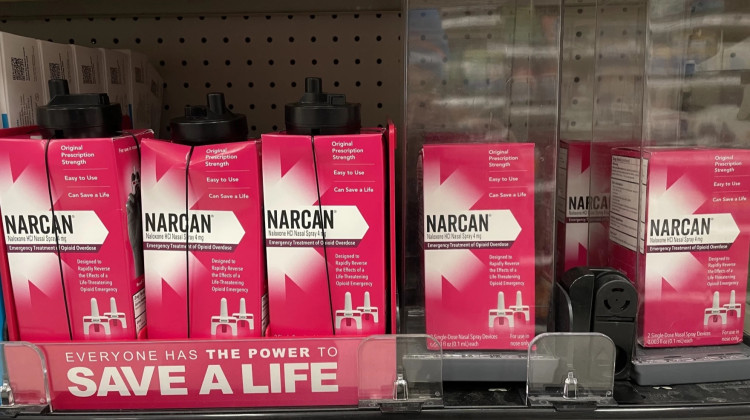
Brandon Dreiman led a session on mental health at the annual Indiana Emergency Response Conference.
Jill Sheridan/IPB NewsThe annual Indiana Emergency Response Conference was held in Indianapolis and mental health was the focus during a number of sessions.
An estimated 30 percent of emergency responders have a behavioral health condition. That could include anxiety, depression or post-traumatic stress disorder.
Indianapolis Fire Department Peer Support Team Coordinator Brandon Dreiman says more awareness is needed.
"Stigma is driven by ignorance," says Dreiman. "We’re trying to educate and have these conversations to cut down on that stigma, but that is still a big barrier."
Dreiman says the cost and availability of care are also barriers.
Substance use disorders, especially alcohol, are one of the biggest behavioral health issues for first responders.
"The idea that we’re not going to get them in trouble, but in the end we’re just enabling them to engage in that conduct again and again rather than getting a solution," says Dreiman.
Emergency departments across Indiana are using peer support employees to help responders.
"If we can have people on the team that have personal experience in addiction or depression, that we can pair that person up with, who may understand that journey better than anyone else, all the better," says Dreiman.
More than 600 people attended this year’s conference.
 DONATE
DONATE








 Support WFYI. We can't do it without you.
Support WFYI. We can't do it without you.